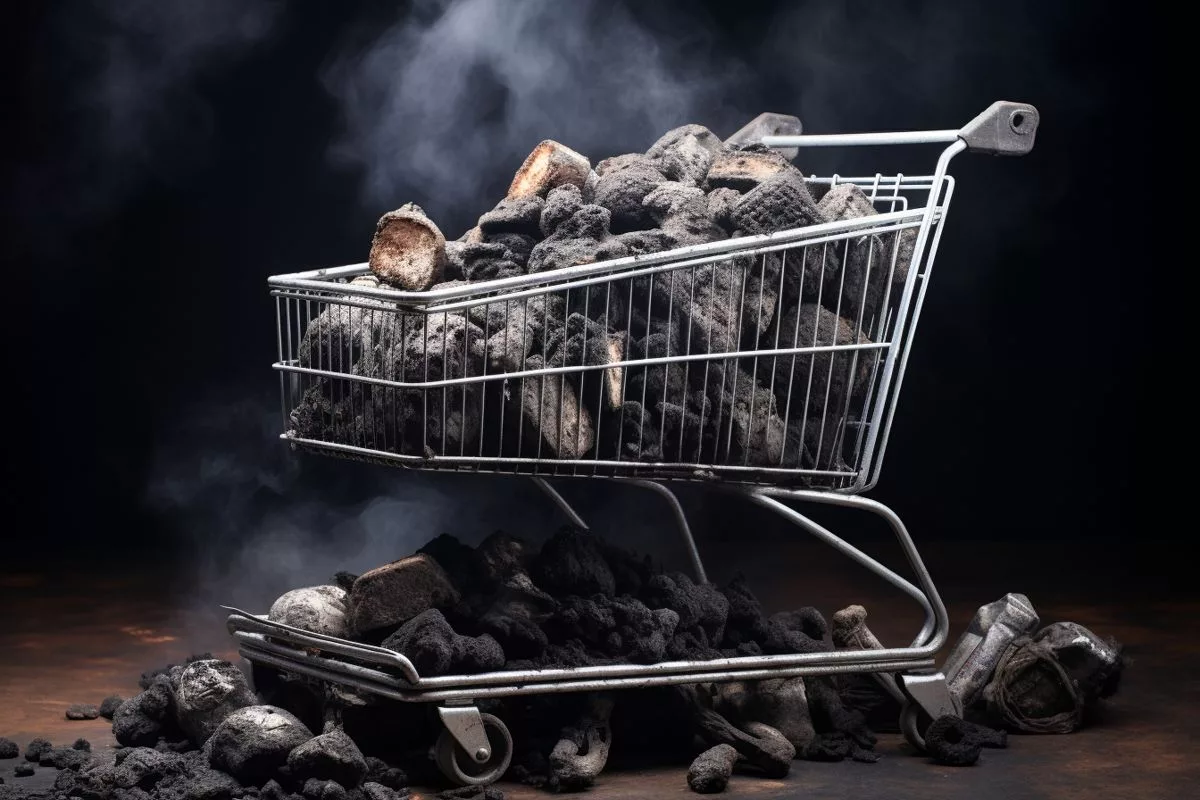Black Friday shopping can pose risks to consumer wellbeing, with counterfeit and out-of-date food items on the market. To ensure quality and safety, consumers should be vigilant of unusual color, texture, scent, and packaging, as well as inconsistencies in stated ingredients, and look for clearly displayed manufacturing and expiry dates. Reporting suspicious vendors is also crucial, and South African law enforcement is authorized to investigate and act under the Foodstuffs Act as Inspectors. Ultimately, safety and quality should be prioritized over savings during Black Friday shopping.
How to ensure quality and safety during Black Friday shopping?
Consumers can ensure quality and safety during Black Friday shopping by being vigilant of unusual color, texture, scent, and packaging, as well as inconsistencies in stated ingredients, and by looking for clearly displayed manufacturing and expiry dates. They should also avoid buying or eating highly perishable products with compromised packaging or expired dates. Retail outlets and vendors suspected of selling illegal goods should be reported to Environmental Health Practitioners or Food Inspectors, and South African law enforcement is authorized to investigate and act under the Foodstuffs Act as Inspectors.
Embracing the Allure of Black Friday Deals
The widely celebrated Black Friday, revered for its enticing bargains and markdowns, is undoubtedly enticing. However, beneath the whirlwind of sales and prospective savings, a less enticing truth lurks. The marketplace is scattered with counterfeit and out of date food items, posing a threat to consumer wellbeing. This risk intensifies during Black Friday, necessitating heightened awareness.
The Health Department is instrumental in safeguarding consumers, especially during Black Friday. It advocates for the emphasis on quality and safety rather than quantity and savings. Why? To shield consumers from the hazards posed by fake and expired products. The Department’s appeal is not merely about mitigating the economic effect of counterfeit goods but also about lessening the risk of severe foodborne illnesses.
To support this endeavor, the Health Department offers tips for alert consumers. Unusual color, texture, scent, and packaging could indicate fraudulent products, as could inconsistencies in the stated ingredients. Moreover, it’s crucial to look for clearly displayed manufacturing and expiry dates.
The Role of Collective Vigilance
The onus of vigilance doesn’t merely fall on individuals. Retail outlets and vendors suspected of peddling illegal goods should be reported to Environmental Health Practitioners or Food Inspectors at the closest municipal offices or the Consumer Goods Council of South Africa. This highlights the vital role of communal vigilance in safeguarding public health.
Aside from individual caution and reporting systems, South Africa boasts a framework of food inspection. There are 1712 Environmental Health Practitioners, referred to as Health Inspectors, distributed across 44 districts and eight metropolitan municipalities. These health guardians work relentlessly to serve 62 million South Africans.
However, their solitary efforts are insufficient. Considering the ratio of one health inspector to every 36,000 citizens, the battle against the manufacture and sale of harmful food items can’t solely rely on their efforts. It’s a shared responsibility.
Consumers should avoid buying or eating highly perishable products with compromised packaging or expired dates – even if they seem or smell okay. This rule is particularly relevant considering the severe health dangers linked to eating expired and counterfeit foods, which include food poisoning, allergic reactions, and long-term health issues.
Legal and Personal Measures for Consumer Safety
Alongside these efforts, South African law enforcement is authorized to investigate and act under the Foodstuffs Act as Inspectors. They are allowed to collect food samples for analysis during their investigations, specifically in cases of unnatural deaths.
While these measures might appear intimidating, they are indeed necessary. Black Friday is not only about grabbing deals; it’s about guaranteeing the safety and health of countless consumers. It’s a call for consumers to be careful, informed, and discerning.
For any additional questions, consumers can contact Mr. Foster Mohale, the Health Departmental Spokesperson, or Mr. Doctor Tshwale, the Spokesperson for the Health Minister.
The urge to snatch the best Black Friday deals is potent, but remember that it’s not just about maximizing your money. Ultimately, the true worth lies in the safety and quality of the products you acquire. So, as you venture into the shopping frenzy, keep your eyes keen and your standards elevated. After all, it’s not just about great deals; it’s about great health as well.
Navigating the Black Friday chaos can be demanding. Still, with the Health Department’s advice and consumer alertness, shoppers can relish the savings without jeopardizing their health. In doing so, we can turn Black Friday from a mere shopping holiday into a statement of our joint dedication to quality, safety, and good health.
What risks do consumers face during Black Friday shopping?
Consumers face the risk of purchasing counterfeit and out-of-date food items during Black Friday shopping, which can pose a threat to their wellbeing. It is important to be vigilant of unusual color, texture, scent, and packaging, as well as inconsistencies in stated ingredients, and to look for clearly displayed manufacturing and expiry dates.
What can consumers do to ensure quality and safety during Black Friday shopping?
Consumers can ensure quality and safety by being vigilant of unusual color, texture, scent, and packaging, as well as inconsistencies in stated ingredients, and by looking for clearly displayed manufacturing and expiry dates. They should also avoid buying or eating highly perishable products with compromised packaging or expired dates. Retail outlets and vendors suspected of selling illegal goods should be reported to Environmental Health Practitioners or Food Inspectors.
What is the role of the Health Department in safeguarding consumers during Black Friday?
The Health Department advocates for the emphasis on quality and safety rather than quantity and savings to safeguard consumers from the hazards posed by fake and expired products. The department offers tips for alert consumers, and it is instrumental in safeguarding consumers, especially during Black Friday.
What is the role of collective vigilance in safeguarding public health during Black Friday?
Retail outlets and vendors suspected of peddling illegal goods should be reported to Environmental Health Practitioners or Food Inspectors at the closest municipal offices or the Consumer Goods Council of South Africa. The battle against the manufacture and sale of harmful food items can’t solely rely on their efforts. It’s a shared responsibility.
What legal and personal measures are in place for consumer safety during Black Friday?
South African law enforcement is authorized to investigate and act under the Foodstuffs Act as Inspectors. They are allowed to collect food samples for analysis during their investigations, specifically in cases of unnatural deaths. Consumers can contact the Health Departmental Spokesperson or the Spokesperson for the Health Minister for additional questions.
What is the true worth of Black Friday beyond the deals?
The true worth of Black Friday lies in the safety and quality of the products acquired. Consumers should be careful, informed, and discerning while navigating the shopping frenzy. It’s not just about great deals; it’s about great health as well.








